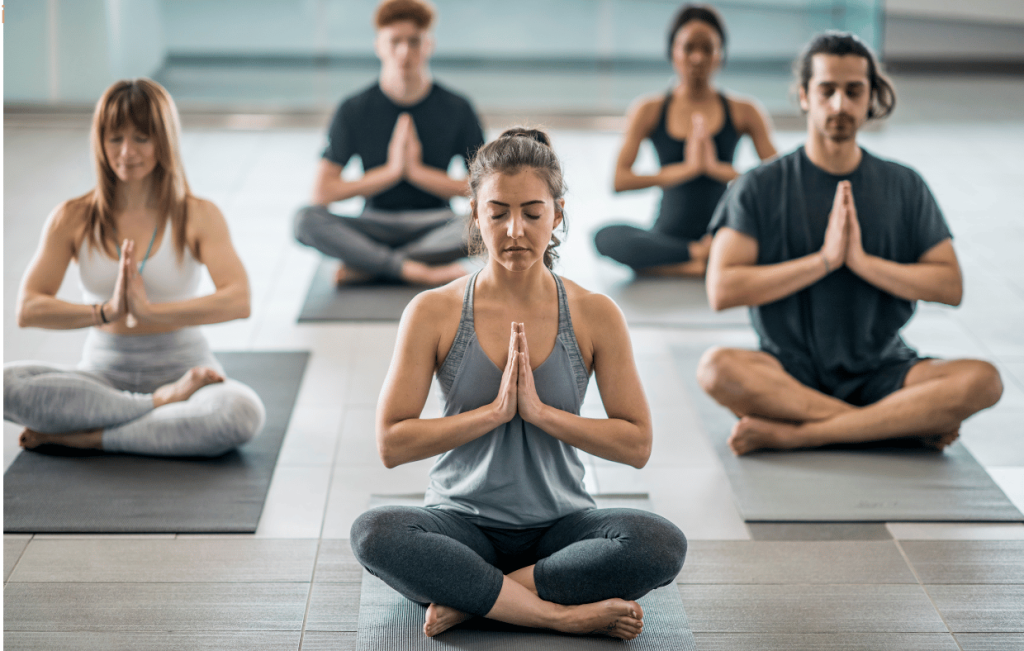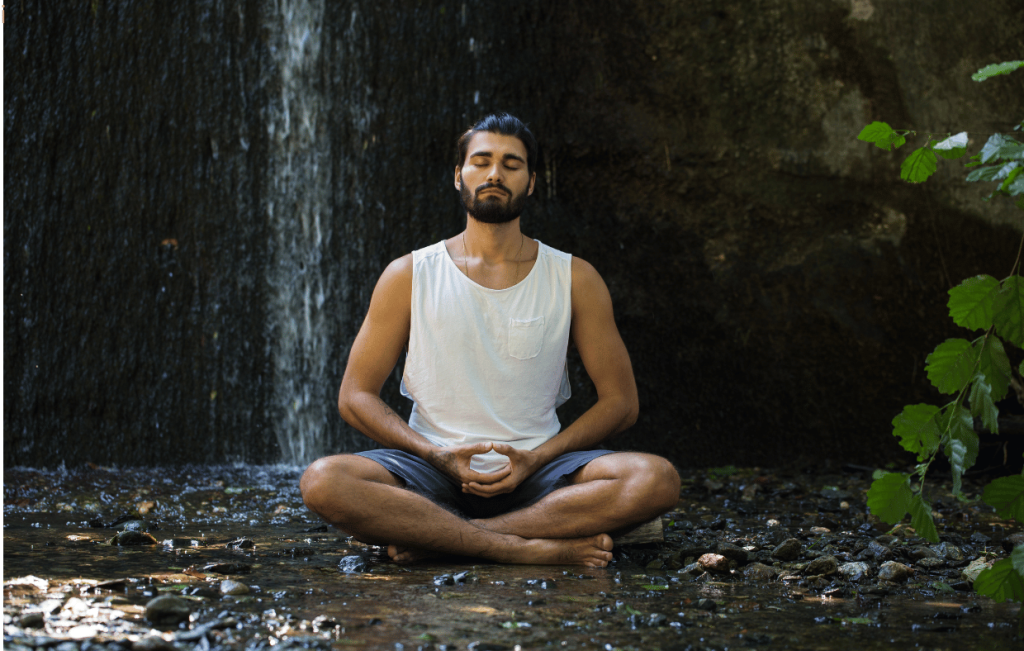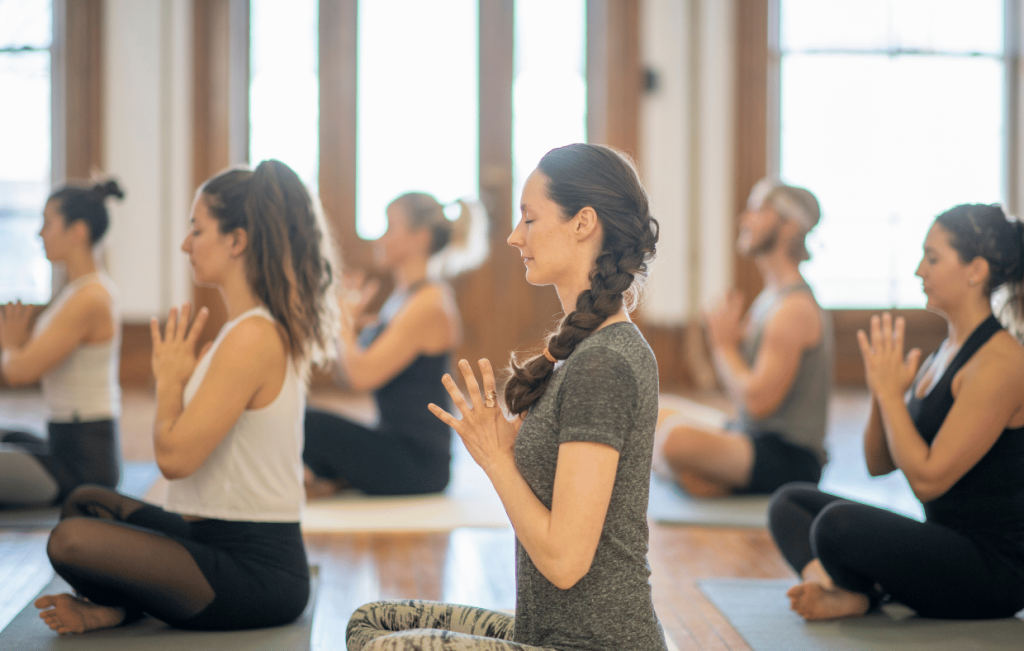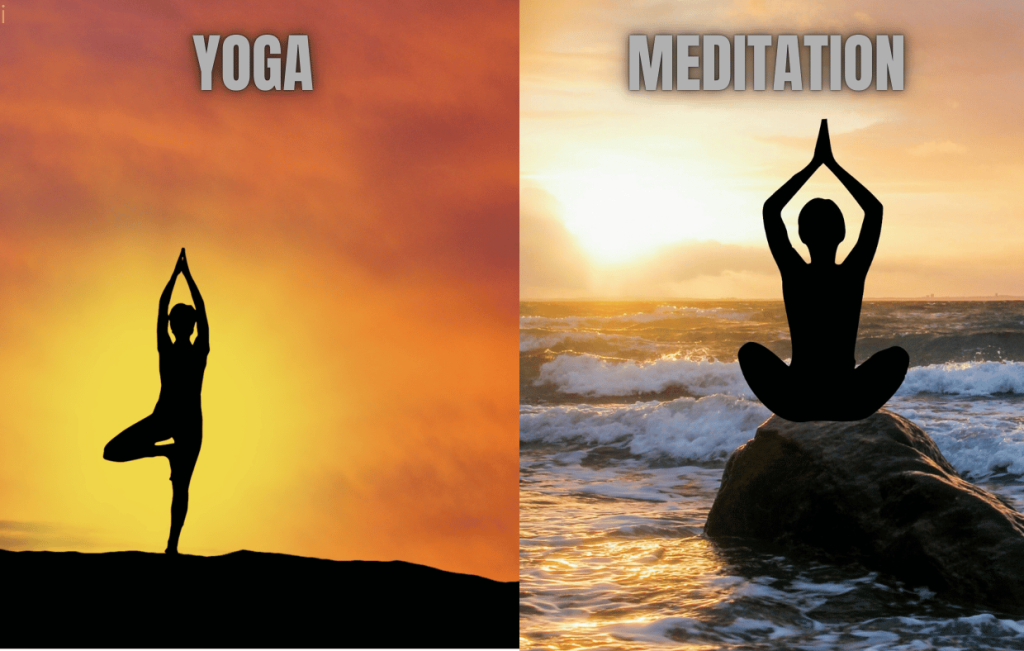When exploring the realms of personal well-being, two practices often emerge as cornerstones of holistic health: yoga and meditation. Yoga vs Meditation: Which Is Best Between Benefits? Rooted in the ancient wisdom of India, both offer pathways to physical, mental, and spiritual harmony.
However, deciding which is best suited to your needs requires an understanding of their benefits and practices. This article delves into the nuances of yoga and meditation, exploring their unique advantages and shared strengths.
Whether you’re new to these practices or seeking deeper insights, this is your guide to making the best choice for your wellness journey. For more resources, check out this exceptional guide.

Origins and Foundations
Yoga and meditation share a rich history, both tracing their origins to ancient India. Yoga, first mentioned in the sacred texts of the Vedas, encompasses a blend of physical postures (asanas), breathing exercises (pranayama), and meditative states aimed at uniting body and mind.
Meditation, though a component of yoga, has evolved into its practice, emphasizing mental focus and mindfulness to achieve inner peace and clarity.

Key Differences Between Yoga and Meditation
While yoga is often associated with physical poses and movement, meditation centers on stillness and mental focus. The physical practice of yoga engages the body through asanas, enhancing strength, flexibility, and balance.
In contrast, meditation techniques prioritize mental clarity, mindfulness, and emotional stability, often requiring little to no physical exertion.
Yoga: A Physical and Mental Integration
- Physical Aspect: Yoga asanas involve various poses and movements designed to improve physical health, such as reducing chronic pain and enhancing cardiovascular function.
- Holistic Approach: Yoga sessions incorporate breath control, mindfulness practices, and meditative states, offering a comprehensive way of life.
- Active Practice: Unlike meditation, yoga requires physical effort, making it a great way to combine exercise with relaxation.
Meditation: A Mental Oasis
- Focus on Stillness: Meditation eliminates physical movement, centering on mental exercises and techniques.
- Mental Practice: Methods like mindfulness-based stress reduction and vipassana meditation help practitioners manage stress and negative emotions.
- Universal Application: Meditation can be practiced anywhere, often needing no more than a quiet space and a few minutes.

Benefits of Yoga
Yoga’s benefits extend across physical, mental, and emotional dimensions. Regular yoga practices lead to significant improvements in overall health, offering a unique opportunity to harmonize the body and mind.
- Physical Health:
- Enhances flexibility, strength, and balance through various yoga poses.
- Lowers blood pressure and reduces heart rate, contributing to cardiovascular health.
- Supports weight loss by combining physical exercise with mindful eating habits.
- Alleviates chronic pain and improves mobility in conditions like arthritis.
- Mental Health:
- Reduces stress levels and promotes mental clarity through mindfulness practices.
- Helps manage anxiety and depression by fostering inner peace and emotional stability.
- Encourages mindfulness meditation during asana practice, enhancing focus on the present moment.
- Systemic Benefits:
- Strengthens the immune system by reducing stress-related inflammation.
- Improves nervous system functioning, enabling better stress response and relaxation.
- Spiritual Growth:
- Acts as a spiritual practice for many, aligning body and mind with higher consciousness.
- Yoga Nidra, or yogic sleep, offers deep relaxation and meditative states.

Benefits of Meditation
Meditation provides a gateway to mental clarity and emotional well-being. Its simplicity and accessibility make it an exceptional care practice for individuals of all ages.
- Mental Stability:
- Enhances focus, reduces negative emotions, and fosters a calm mental state.
- Helps achieve mindfulness, a key practice for living fully in the present moment.
- Stress Reduction:
- Mindfulness-based stress reduction techniques have shown significant reductions in anxiety and stress levels.
- Guided meditation sessions offer a systematic approach to relaxing the mind and body.
- Health Benefits:
- Lowers blood pressure, reduces chronic pain, and improves sleep quality.
- Encourages better breathing patterns, benefiting the respiratory system.
- Spiritual Practice:
- Acts as a form of meditation that deepens spiritual awareness.
- Techniques like vipassana meditation lead to greater self-awareness and insight.

Yoga vs. Meditation: Health Benefits
In recent years, systematic reviews have highlighted the health benefits of both yoga and meditation. Each offers unique advantages depending on individual needs and personal preferences.
- Cardiovascular Health:
- Yoga postures and breathing exercises enhance heart health by lowering stress-induced hypertension.
- Meditation reduces heart rate variability, contributing to long-term cardiovascular benefits.
- Mental Clarity and Focus:
- Yoga’s integration of physical movement with mindfulness fosters mental clarity and emotional balance.
- Meditation techniques train the mind to focus on a particular object or thought, improving concentration and reducing mental fatigue.
- Stress Management:
- Both practices offer mindfulness-based strategies to reduce stress levels.
- Yoga’s physical aspect provides an active way to channel stress, while meditation’s stillness offers mental reprieve.

Which Practice is Better?
Choosing between yoga and meditation depends largely on your goals, lifestyle, and health needs. Here’s a closer look at who might benefit most from each:
Yoga: Best for Physical and Mental Integration
- Ideal for individuals seeking a form of exercise that enhances flexibility and strength.
- Perfect for those wanting a holistic practice that combines mindfulness and physical health.
- A great way to lower stress levels while improving overall fitness.
Meditation: Best for Mental and Emotional Focus
- Suitable for those looking to manage stress and achieve mental stability.
- A perfect choice for individuals with limited time or mobility, as it requires little movement.
- Best for enhancing mental clarity, focus, and mindfulness in daily life.

Combining Yoga and Meditation
For many practitioners, yoga and meditation are not mutually exclusive but complementary practices. Incorporating both into your daily routine offers a holistic approach to health and well-being. Begin with a yoga class to engage your body, followed by a meditative practice to calm your mind.
Final Thoughts
Whether you lean toward yoga or meditation, both offer invaluable benefits for physical, mental, and emotional health. Yoga integrates body movement with mindfulness, making it an excellent form of exercise and stress relief. Meditation, with its focus on stillness and mental clarity, provides a direct pathway to inner peace and emotional resilience.
The best choice ultimately depends on your personal preferences and goals. Explore both practices, listen to your body and mind, and embrace the journey toward holistic well-being. Start today with a guided resource to unlock your potential for health and happiness.

Key Takeaways
- Yoga: Best for physical and mental integration, with benefits for flexibility, strength, and emotional balance.
- Meditation: Best for mental clarity, emotional stability, and stress reduction.
- Combining Both: Offers a unique opportunity for holistic health and spiritual growth.
No matter which path you choose, regular practice is the key to unlocking the transformative power of yoga and meditation. Let these ancient practices guide you toward a healthier, happier, and more balanced life.
Q&A: Yoga vs. Meditation
🗒️ Answer
1. Is yoga more beneficial than meditation?
Both yoga and meditation offer unique benefits, but neither is inherently “better” than the other. Yoga is more beneficial for those looking to improve physical health, flexibility, and strength. It combines physical movement with mindfulness, contributing to both mental and physical well-being. Meditation, on the other hand, focuses primarily on mental clarity, stress reduction, and inner peace. It’s a practice that enhances focus and emotional stability. Whether one is more beneficial depends on your personal goals—if you want physical benefits, yoga might be more suitable, while meditation excels in enhancing mental health and calmness.
2. Is it better to do yoga or meditate first?
It depends on your personal preferences and goals. Some find that doing meditation first helps clear the mind, making yoga practice more focused and grounded. Others prefer to start with yoga, as the physical movement prepares the body for stillness, leading to a more effective meditation session afterward. If you’re looking for relaxation, meditation first might be more beneficial, while if you need to release physical tension, yoga could be the ideal starting point.
3. What is more effective than meditation?
While meditation is highly effective for mental health, certain practices, such as mindfulness-based stress reduction (MBSR), combine meditation with other techniques, making them more holistic. Additionally, practices like yoga, which engage the body alongside the mind, can provide more immediate physical benefits than meditation alone, such as improved flexibility, strength, and stress relief. However, meditation is still regarded as one of the most potent techniques for fostering mental clarity and emotional stability.
4. Can I replace meditation with yoga?
Yoga can be a substitute for meditation to some extent, especially for those who find it difficult to sit still. Through the combination of physical postures (asanas), breathwork (pranayama), and mindfulness, yoga offers many of the mental benefits associated with meditation, such as stress relief and improved focus. However, yoga cannot entirely replace meditation, especially for those seeking deep mental stillness or spiritual insight, which meditation offers more directly.


